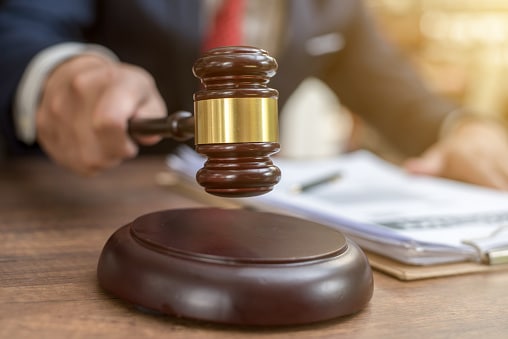TOPLINE – The coronavirus pandemic has either uprooted or impacted nearly every facet of life across the globe—and high profile court cases are no exception. Here are the big cases delayed because of COVID-19:
KEY FACTS
- Wikileaks founder Julian Assange’s extradition hearing to the U.S. on charges of espionage was pushed back Monday to as late as November 2020; a new trial date should be decided by May 4.
- Theranos founder Elizabeth Holmes’ criminal trial for charges of conspiracy and wire fraud was delayed April 15, with a judge rescheduling it for October 27.
- Robert Durst (of The Jinx notoriety) is scheduled to go to trial for murder May 26 after a Los Angeles judge pushed it back six weeks—becoming the second trial postponement for Durst due to the pandemic.
- A preliminary hearing for Joseph DeAngelo, also alleged as the Golden State killer, was moved from May 12 June 29—he faces 26 felony charges, including 13 for murder.
- The sanity trial for Jarrod Ramos, the Capital Gazette gunman, was pushed back April 15, but no new date has been established; Ramos previously pled guilty to murder and 18 associated charges.
- The Supreme Court postponed 20 arguments scheduled for March and April, before announcing April 13 that it would hear 10 arguments by telephone over a six-day period in May.
CRUCIAL QUOTE
“We’re going to have to completely rethink how much has to be done in person, how much can be done using technology—that whole issue that we’ve just never paid much attention to, is going to be front and center going forward,” Texas Supreme Court Justice Nathan Hecht told ABC News. “Our operations will never be the same.”
CHIEF CRITIC
The American Civil Liberties Union has expressed concerns about protecting people’s rights during the pandemic. “As the government takes the necessary steps to ensure public health, it must also safeguard people’s due process, privacy, and equal protection rights,” said ACLU National Security Project director Hina Shamsi in a statement.
KEY BACKGROUND
State and federal courts across the country have been forced to change their normal operating procedures due to the coronavirus pandemic. At least three federal courthouses in Pennsylvania, Georgia and Delaware have been closed after workers were confirmed to have COVID-19. Other courts are attempting to shift to holding hearings by video conferencing, which can have technical glitches that make it difficult to follow along. Juries are also largely unable to be convened, further delaying trials for defendants. ABC News reported that some criminal justice advocates are optimistic that the pandemic will encourage technological developments in the courts, and increase transparency for the public.
TANGENT
The Supreme Court on Monday dismissed a hotly-anticipated gun rights case, while ruling that health insurance companies can sue to collect Obamacare payments.
–Lisette Voytko,Forbes Staff, Business
